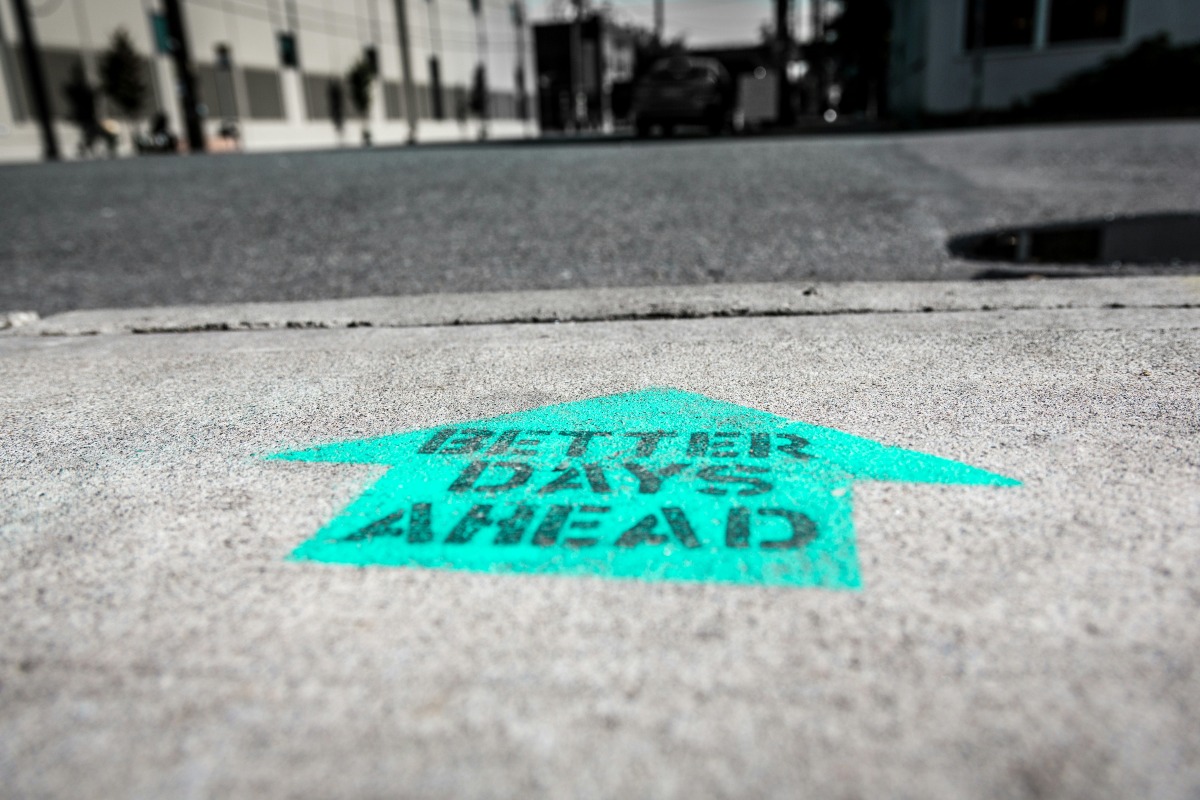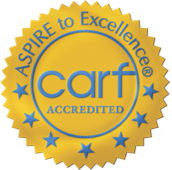The stresses of military life can have lasting, profound effects. However, new and difficult challenges may also arise as younger veterans complete their service and transition out of military duty into civilian life. Understanding the difficulties that younger veterans face, as well as how to provide support, is crucial for navigating this transition, especially while addressing the prevalence of addiction among military personnel. However, there are always resources available to support young veterans throughout this time, supporting a healthy transition and a new and effective approach to sobriety as a veteran.
The Challenges That Young Veterans Face
Military personnel of any age or branch of the armed forces face a unique set of challenges after returning home from active duty and when transitioning to civilian life. This plethora of unique needs demands a specialized approach to healing and care. Understanding and destigmatizing these challenges is the first step in helping young veterans find effective support for overcoming their effects and preventing additional unnecessary challenges among those who have already given so much to their country and community.
Each young veteran may also have their own unique experiences with the military. While some may have had wholly positive experiences during their time in the military, meeting others and sharing in culture, others may have had negative experiences. Approaching young veterans with an open mind and listening to how these challenges affect each individual is part of finding the right support for young veterans.
The Prevalence of Trauma Among Young Veterans
Trauma is commonplace throughout military life. Witnessing life-threatening situations, the grief in the loss of brothers and sisters in arms, physical injuries from active war zones, and more can all stay with a person long after the battle has ended. Young veterans can carry these traumatic experiences back home, reframing how they see the world and their behaviors and perspectives in daily life.
However, trauma can also come in many other forms, and a young veteran does not necessarily have to live through an active war zone to experience the effects of trauma related to military life. An intense training regimen can lead to traumatic experiences. However, even more destructive is military sexual trauma, or MST.
MST is any kind of sexual trauma, from unwanted comments to touching a person’s body or rape, that takes place on a military base from fellow service members. Young veterans can commonly be the target of MST. While MST is more common in women, men in the military can still experience MST, leading to lasting traumatic experiences and affecting a person’s perspectives of the military and their time in it.
Mental Health Disorders Following Service in Young Veterans
Feelings of anxiety, depression, guilt, and much more are also common among young veterans. Anxiety disorders, flashbacks to traumatic experiences, major depression, and more can all impact daily life, informing not just how a person feels but also their daily behaviors and beliefs, and even informing potential coping strategies, including the use of drugs or alcohol to self-medicate these challenges. Suicidal ideation can also be common, especially as these feelings continue to build in the back of a person’s mind and when accompanied by even more intense feelings of shame, guilt, or hopelessness.
Chronic Pain and Injury in Civilian Life
Young veterans put their bodies on the line in the line of duty, and many young veterans may return home with various injuries or scars from their time in service. However, while the physical pain of these injuries can still persist, leading to challenges and frustrations in daily life, they can also carry an emotional weight. Chronic pains can also serve as reminders of past traumas or the life-threatening events that led to such an injury, making it difficult to physically or emotionally move on from these events, with young veterans carrying these pains and memories for a long time after service.
For some, these pains can also lead to prescription painkillers, some of which are addictive themselves, furthering the connection between these injuries and the development of addiction in civilian life.
Young Veterans Transitioning to Civilian Life
Military life is unique and has its own culture, values, social expectations, and norms. Life on base is vastly different than that of civilian peers. For young veterans transitioning out of military service and into civilian life, this transition can be difficult. Adjusting to new cultures, as well as feelings of isolation as a person is separated from a familiar military culture and peers, can be difficult to adjust to, with many young veterans having difficulty feeling like they really belong in a civilian community.
Difficulty talking to civilian peers, developing meaningful connections, and adapting to an entirely new lifestyle as a veteran can all be uncomfortable. Many veterans may feel isolated throughout this transition, making it difficult to discuss these challenges or find effective solutions.
Employment and Financial Stress
Young veterans are also tasked with finding new employment after their time in the military. However, this can be exceptionally difficult, with many young veterans not knowing where to start or having difficulty maintaining employment. For some, this can be due to the lack of a resume when looking for jobs. Young veterans who joined the military out of high school or college can find it difficult to use their experience in a professional workplace environment, making it difficult to find a job.
Others may have difficulty keeping a job due to the continued effects of military life, especially when living with trauma or post-traumatic stress disorder (PTSD). Symptoms of trauma can affect daily life, from compromising routines and mental health to making it difficult to get up and go to work, affecting professional attendance, performance, and even employment status.
Challenges to Military Identity Among Young Veterans
Many people hold their military service in great honor, taking pride in their service to their country. However, leaving the military and beginning life as a young veteran can affect a person’s sense of identity as they are separated from their culture and feelings of acceptance and belonging. For other young veterans, politics surrounding military activity or military operations and engagements can also lead to friction as young veterans are torn between the public perception of their service and their own attitudes and beliefs about military life.
Addressing the Stigmas of Personal Needs
Unfortunately, mental health disorders and addiction still have a great deal of stigma surrounding them, making reaching out for help feel risky, as if a person is compromising their social well-being, personal image, or character if they admit the need for help. Unhealthy and erroneous assumptions about addiction can further make it difficult to acknowledge and challenge the disease. However, young veterans can experience an additional layer of difficult stigmas.
Military personnel are meant to embody the spirit of strength, protection, and dedication. Many young veterans carry these ideals into civilian life. It is both physically and emotionally exhausting to maintain this image and expectation, often leading to further stress. However, even if a young veteran would otherwise benefit from reaching out for support to overcome addiction, trauma, mental health disorders, or a combination of these challenges, stigmas, pride, and unhealthy expectations can prevent young veterans from taking this step for their own well-being.
Connecting These Challenges and Substance Use
Addiction is a powerful disease that affects the body and mind equally, resulting in drastic changes to daily life as well as mental and physical health. For young veterans, addiction can also be incredibly prevalent. With the plethora of challenges that young veterans face, both from their time on active duty to the challenges and stresses of transitioning to civilian life, looking for ways to self-medicate these challenges is common, often with the use of drugs or alcohol being a common and accessible method of attempting to cope with these challenges.
Many military personnel may also turn to drugs or alcohol as a result of on-base cultures and coping strategies. Drinking can be an accepted, or even expected, part of daily life on some military bases, with the use of alcohol to address unspoken challenges of trauma being common in some military cultures. With these expectations, turning to drugs or alcohol in civilian life can be an easy transition or even a practiced way to address difficult challenges, even in civilian life.
However, addiction can be devastating. Finding resources and support for overcoming addiction, as well as the underlying needs and experiences that led to the use of drugs or alcohol, is paramount for effective healing in younger veterans.
The Need for Dedicated, Catered Support
No part of overcoming any of these challenges is easy. Not only is addiction a truly comprehensive disease that is connected to each person’s individual experiences and needs, but it is also intimately connected to the challenges that young veterans face each day. With these unique challenges, veteran-specific, catered support is crucial for truly effective and sustainable healing.
Young veterans in treatment can find it difficult to connect with civilian peers, and this is still true even in dedicated treatment programs. If a young veteran doesn’t feel as if their challenges are understood by professionals or peers, it can be easy to distance themselves from otherwise effective recovery efforts. Some may even interpret this as the ineffectiveness of treatment as a whole, giving up on healing opportunities and treatment programs if their specific needs aren’t acknowledged.
Dedicated veteran programming and resources are crucial for addressing addiction. Overcoming addiction will always be a personal journey, and a personalized approach to change is necessary, not just in finding the most effective treatment programs, therapies, and modalities but also in creating a community and spirit of healing that is more effective for each person. Sharing challenges and needs can create the sympathy, understanding, and feeling of acceptance necessary to engage in truly effective healing, and a dedicated veteran healing program for young veterans is crucial for this kind of change.
Resources for Young Veterans
Finding the right support for overcoming addiction among young veterans can be exceptionally difficult, but healing is always possible. However, dedicated support for young veterans and programs designed to address these unique challenges is paramount. Support is always possible to help young veterans take their first step toward healing and effective addiction recovery, especially in identifying the right professional treatment program, support, and strategies for sustainable care.
Using Support Lines
While pervasive stigmas can make it difficult to reach out for help, anonymous support lines can be a constant and confidential resource for young veterans addressing mental health disorders, addiction, and suicidal ideation. The veterans’ crisis line can be contacted by dialing 988 and then pressing 1, which is a resource for young veterans to discuss personal needs while maintaining anonymity. This resource is also available to families and friends of young veterans to help provide support and get educated about signs of a crisis and how to best support a veteran loved one who may be struggling with depression, suicidal ideation, and more.
The Wounded Warrior also offers Project Talk, a free mental health support hotline at 888-997-2586.
Contacting Hawaii Island Recovery or a Local Treatment Facility
Different cultures and expectations surrounding substance use can also lead to ambiguity surrounding what words like “addiction” really mean. Contacting a local treatment facility or Hawaii Island Recovery to learn more about addiction, its signs and symptoms, and treatment options is a great way to explore how to support a young veteran loved one.
Familiarizing oneself with the signs of addiction can empower families and loved ones to more accurately and effectively identify addiction and the need for change, all while exploring the underlying challenges that led to the situation to encourage sympathy, caring, and support over blame and anger.
Ensuring that a local treatment facility also caters to the unique challenges of young veterans is also crucial to ensure that these locations can be an effective support for addiction recovery. Hawaii Island Recovery offers dedicated trauma-informed veteran treatment programs to explore not just the role of substance use and addiction in daily life but also how the unique experiences of veterans can inform use for the most effective and personalized healing possible. These programs also create a community of veteran peers to come together in solidarity to overcome these challenges while sharing a feeling and sense of belonging through shared experiences, culture, and perspectives while overcoming addiction.
Find Local Veteran Groups
Addiction can also be difficult to overcome as many young veterans feel alone in these challenges, both in overcoming addiction as well as isolated from peers in civilian life. Locating a local veteran support group, whether it is dedicated to addiction recovery or a community of local veterans to share experiences and create a community, can be a great step toward exploring change. Finding others who share experiences and foster an open sense of belonging is a powerful thing. These local veteran groups can support young veterans in overcoming isolation to challenge their use of drugs or alcohol through new communities, sympathetic support, and encouraging acceptance and healing.
Become Familiar With the Local VA
The Department of Veterans Affairs (VA) is a nationwide support system for veterans of any age. Familiarizing oneself with the local VA outpost and using the resources therein can be a great beginning to exploring healing as a veteran. VA outposts can help locate dedicated treatment facilities and provide mental health and addiction support while encouraging change and understanding.
The VA website can help young veterans locate these outposts in their area, as well as the services offered and healing facilities available, to encourage effective healing for overcoming addiction, mental health disorders, trauma, and more. This also serves as a repository for information regarding financial assistance, housing assistance, education, and career support to address the underlying stresses that may affect daily life.
Embrace the Healing Potential of Family
Family members can be an amazing source of support in overcoming addiction, even for young veterans. However, educating oneself about the unique challenges of young veterans is paramount to learning to provide effective support. Family members and loved ones can be the first ones to notice the need for change, crisis, and identify the signs and symptoms of addiction. Talking to a professional about veteran challenges and potential family therapy programs can be a great way to begin searching for new ways to support sober change at home and in a professional facility.
Being willing to take on these challenges together, make changes at home, develop communication strategies, and create a destigmatized atmosphere at home is all part of providing effective support. Learning about addiction, trauma, PTSD, and more is just the first step in providing effective support for young veterans. Working with a dedicated treatment facility like Hawaii Island Recovery to maintain sober change and support at home can help promote the most effective approach to sustainable healing for young veterans.
Younger veterans face many challenges, from transition stress and trauma to the effects of drug and alcohol addiction. However, help is always available, and Hawaii Island Recovery is proud to offer a dedicated veteran healing community and act as a resource for young veterans and their families overcoming the effects of addiction after service. Our unique, trauma-informed approach to veteran healing, as well as dedicated family therapy programs and support, all work together to help young veterans find the support and resources needed for sustainable change after service. To learn more about how we can help you or your loved one, call to speak to one of our caring, trained staff members today at (866) 390-5070.












